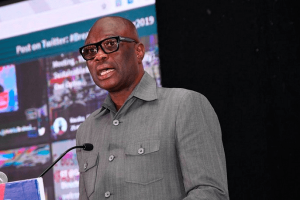The Executive Director of the UK-Ghana Chamber of Commerce (UKGCC), Adjoba Kyiamah, has asked government to step in and offer extra support to the tourism and hospitality industry to help in their fast and robust recovery from the pandemic.
Government last year launched the GH¢1bn Coronavirus Alleviation Programme (CAP) business support scheme to support small and medium-scale enterprises (SMEs) impacted by the pandemic. However, analysts have called for more support to cushion businesses.
The tourism and hospitality industry, the hardest-hit by the pandemic and which comprises mostly SMEs, requires immediate improvement in liquidity to aid its recovery, Ms. Kyiamah said.
“We recommend the introduction of government-backed guarantees for the tourism and hospitality sector, similar to the Ghana Incentive-Based Risk-Sharing System for Agricultural Lending (GIRSAL). This system provides an effective system whereby government provides the necessary undertaking for commercial banks and financial institutions to offer farmers and agriculture-related businesses access to financing. The risks associated with the financing are shared among the parties involved,” she told Business 24 in an interview.
Ghana’s tourism, until the advent of the pandemic, was projected to grow significantly following the huge success of the “Year of Return” initiative. The 2019 Tourism Report by the Ghana Tourism Authority indicated that the country earned US$3.3bn in tourism receipts that year.
To rebuild the industry for the future, a sustainable recovery through financial support is required, Ms. Kyiamah said.
She added that the chamber will continue to advocate policy reforms and interventions that will “help our members rebound quickly and contribute to the growth of the economy.”
The UKGCC recently released the 2020 Business Climate Survey, in which it entreated government to improve both access to and cost of capital to enable businesses recover faster from the COVID-19 shock.
The survey also called for a greater digitization effort to help reduce corruption and increase transparency, and for dialogue between the government and the private sector to understand the needs of businesses regarding their capacity to expand and trade under the African Continental Free Trade Area (AfCFTA).






